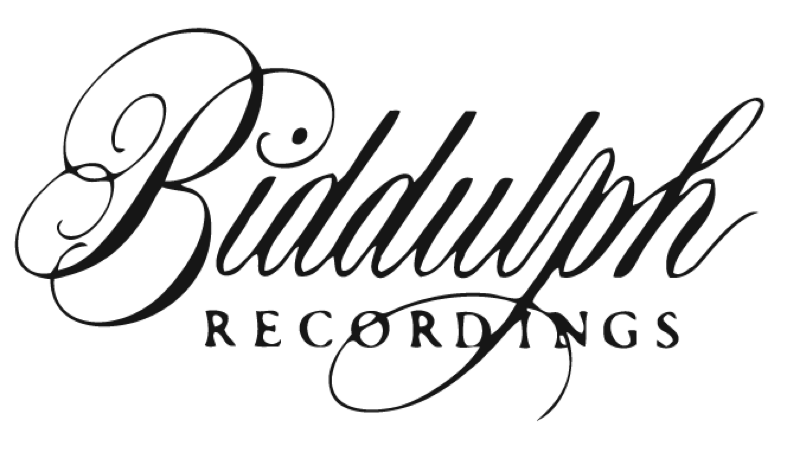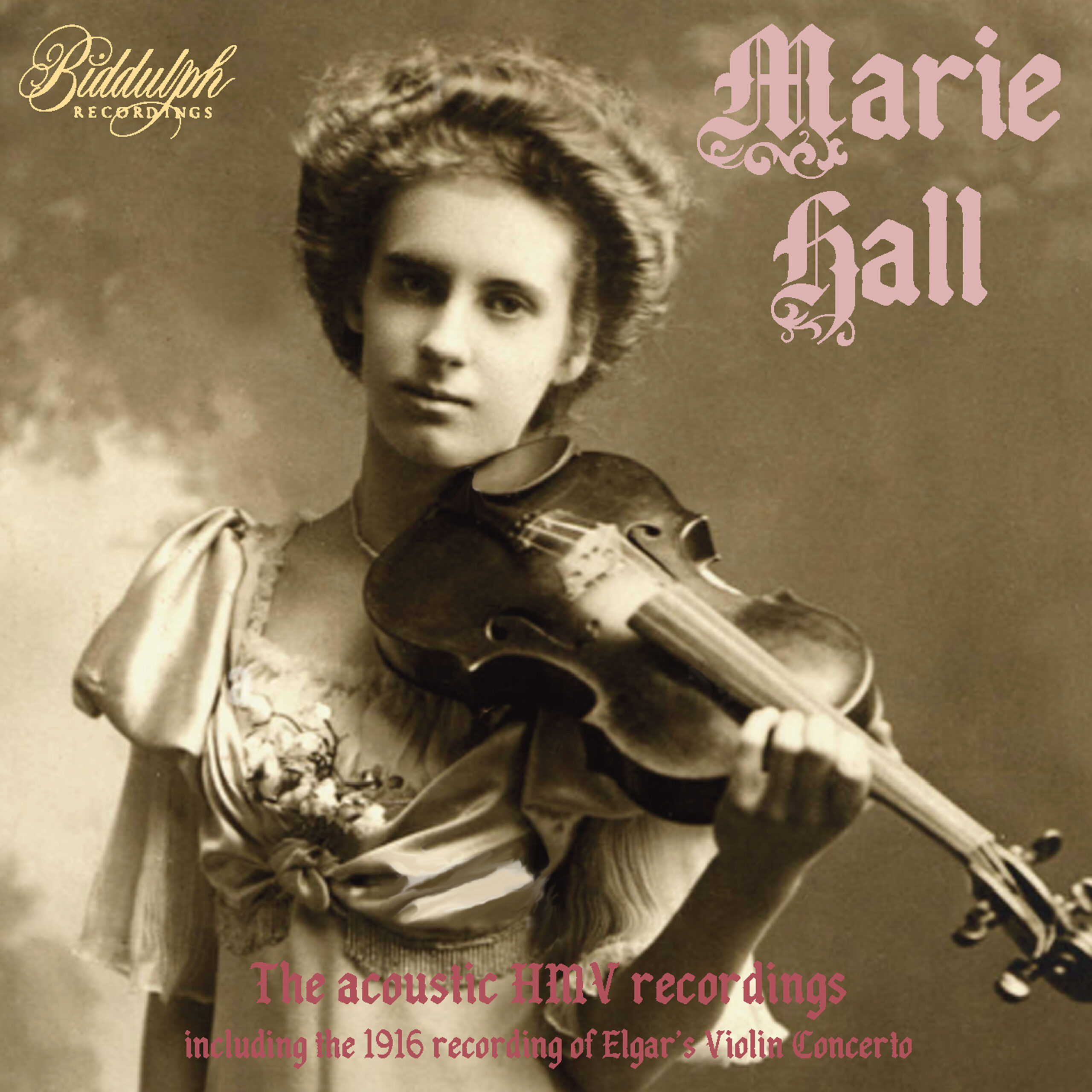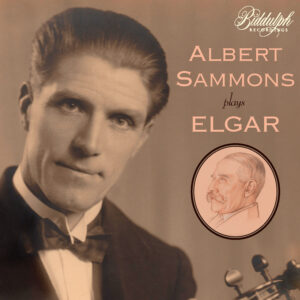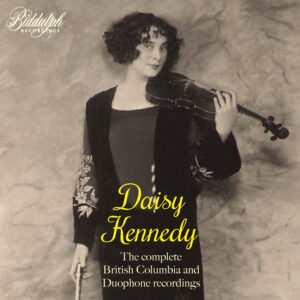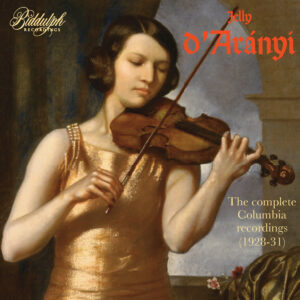Marie Hall – The acoustic HMV recordings
Released 6 June 2025
BDF-ED-85062-2
“One of Britain’s best violinists in the first quarter of the twentieth-century”
“A worthy salute to Marie Hall’s memory”
-Music Web International
Read full review
Born in Newcastle-upon-Tyne in 1884, Marie Hall was one of the most important female violinists of the early 20th century. An early fighter for the acceptance of women as soloists, she was born in comparative poverty but achieved enormous popularity in her teens and was the dedicatee and first performer of one of the most popular violin works: The Lark Ascending by Ralph Vaughan Williams.
Hall began her serious violin studies under Edward Elgar when she was 10 years old and moved to London to work with August Wilhelmj. After Jan Kubelík heard her, he helped arrange for her to study with his teacher, the legendary Otakar Ševčík, in Prague, where she made her début in 1902 playing on her teacher’s Amati (also used by Kubelík at his début). A year later, at the age of 18, she appeared at St James’ Hall playing Paganini’s D-major Concerto, Tchaikovsky’s Concerto and Wieniawski’s ‘Faust’ Fantasy, with Henry Wood and the Queen’s Hall Orchestra, scoring a sensational success. As Wood recalled: ‘In my mind’s eye I can still see that frail, delicate girl coming on to the platform and can hear her faultless intonation and pure technique.’ The following year, she made her first records for the Gramophone & Typewriter Ltd, which later became HMV.
At a prophetic concert given in Cambridge in 1909, Hall was first heard by Vaughan Williams who took note of the young violinist, and would eventually write his beloved Lark Ascending for her. In December 1912, after Hall performed Elgar’s Violin Concerto with the LSO under the composer’s baton, the Illustrated London News critic felt she ‘played the difficult solo part…with extraordinary facility’.
The Great War caused the gestation of The Lark Ascending to be rather protracted – RVW had pretty well sketched it out by August 1914. Marie Hall was one of those who kept concert life going during the war, nevertheless this fraught period brought her sole concerto recording: the abridged version of Elgar’s Concerto. Although she curtailed her concert activities significantly by the mid-1920s. Her last appearance at the Proms came in 1931, and afterwards she began her regular broadcasts for the BBC, which lasted until just before her death in 1956.
Elgar – Violin Concerto in B minor, Op.61
recorded 13 December 1916; 2-07942/45 (HO 2408/10 and HO 2412)
1 I Allegro
2 II Andante
3 III Allegro molto
4 Saint-Saëns – Le Cygne
recorded 7 March 1904; 7962 (5135b)
5 D’Ambrosio – Canzonetta, Op.6
recorded 7 March 1904; 7996 (5134b)
6 Ries – Perpetuum mobile from Suite No.3 in G, Op.34 No.5
recorded 21 December 1904; 7989 (6407b)
7 Mozart (arr. Burmester) – Minuet from Divertimento in D, K334.
recorded 21 December 1904; 7991 (6405b)
8 Mendelssohn – Finale from Concerto in E minor, Op.64
recorded 21 December 1904; 7990 (6408b)
9 Fiocco (arr. O’Neill) – Allegro from Suite No.1 in G
recorded 1 May 1912; 3-7947 (Ae 15190)
10 Kreisler – Minuet ‘in the style of Porpora’
recorded 24 August 1912; 3-7950 (y 15585 e)
11 Raff – Cavatina in D major, Op.85, No.3
recorded 24 August 1912; 07972 (z 6489 f)
12 Schubert (arr. Auer): Moment musical, Op.94 No.3
13 De Angelis – Gigue, Op.2
recorded 24 August 1912; 07973 (z 6492 f)
14 Handel – Bourrée from Sonata in F, HMV 363a
15 Francois Schubert – L’Abeille, Op.13, No.9
recorded 24 August 1912; 07974 (z 6490 f)
16 Bach (arr. Kreisler) – Gavotte from Partita No.3 in E
recorded 4 April 1914; 3-7971 (Ak 17707 e)
17 Paganini – Moto perpetuo, Op.11
recorded 18 May 1914; 2-07916 (Al 7960 f)
18 Aulin – Humoreske from Four Aquarelles, No.2
recorded 18 July 1916; 4-7924 (HO 2961 ae)
19 Leclair (arr. Sarasate) – Sarabande and Tambourin
recorded 19 July 1916; 2-07953 (HO 2016 af)
20 Lalo – Finale from Symphonie espagnole, op.21
recorded 19 July 1916; 2-07934 (HO 2017 af)
21 D’Ambrosio – Romance, Op.9
recorded 19 July 1916; 2-07938 (HO 2015 af)
22 Sarasate – Jota Aragonesa, Op.27
recorded 3 October 1918; 2-07956 (HO 3476 af)
23 DvořáK – Humoresque, Op.101, No.7
recorded 21 February 1924; 4-7931 (Bb 4240-2)
24 Kreisler – La Precieuse ‘in the style of Louis Couperin’
recorded 21 February 1924; 3-7973 (Bb 4239-1)
25 Beethoven (arr. Burmester) – Minuet in G, WoO 10, No.2
recorded 21 February 1924; 3-7945 (Bb 4241-1)
26 Eugène Goossens III: Old Chinese Folk Song, Op.4, No.1
recorded 20 February 1924; 6-7937 (Bb 4236-3)
27 Holst – Valse-étude
recorded 21 February 1924; 6-7938 (Bb 4237-1)
tracks 1-3 with orchestra conducted by Sir Edward Elgar
tracks 4-21 with unidentified pianist
track 22 with Harold Craxton (piano)
tracks 23-25 with Charlton Keith (piano)
tracks 26 & 27 with Marguerite Tilleard (piano)
